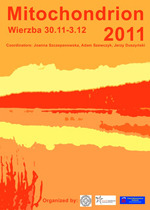General Information
The Institute’s mission is deeply rooted in its long history of
excellence in basic scientific research, but it must be periodically
revised in response to dynamically changing environment of scientific
research and its economical and societal implications. Therefore at the
beginning of the 21st century, termed by some “the age of biology”, the
Institute’s mission and development strategy must be revaluated. The
enclosed director’s note sets the context for such re-evaluation
process, which should involve all the stakeholders, starting with the
Institute’s research and support staff, and ending with the Institute’s
Scientific Council and the Polish Academy of Sciences.
Mission Statement
The Mission of the Nencki Institute of Experimental Biology is to excel
in basic scientific research, maintaining the highest quality of
scientific output in terms of created and disseminated knowledge, which
can be applied in the context of wider societal needs to improve the
quality of life.
The Institute aspires to fulfil its mission by investing in human
capital, in modern technologies, and by stressing the importance of
effective international collaboration.
Investment in human capital is realised by:
- hiring the best young researchers,
- providing the optimal environment for professional development from a PhD candidate to the full professor level,
- offering competitive (on the national scale) salary and benefits to its scientific staff,
- facilitating project management support and abundant international
scientific exchange opportunities to researchers at all stages of their
career.
Investment in modern technologies is realised by:
- recent purchases of top quality equipment, such as the state-of-the-art Leica confocal microscopy unit,
- modernization of the animal house facilities to meet all EU standards,
- investment in Information and Communication Technologies (ITC), such as a videoconferencing centre with real-time video streaming capabilities or on-line document management systems,
- plans to develop a modern neuro-informatics laboratory.
Increased effectiveness of international collaboration is reflected by:
- establishment of the Office of International cooperation and Project Management,
- two recently funded EU research projects within FP5, including the EU Centre of Excellence in Neurobiology,
- participation in eight submitted projects within FP6 (two funded, three not funded, three pending evaluation),
- hosting of major international conferences and workshops
- increased bilateral collaboration (six jointly funded projects within the framework of Polish-German collaboration).










